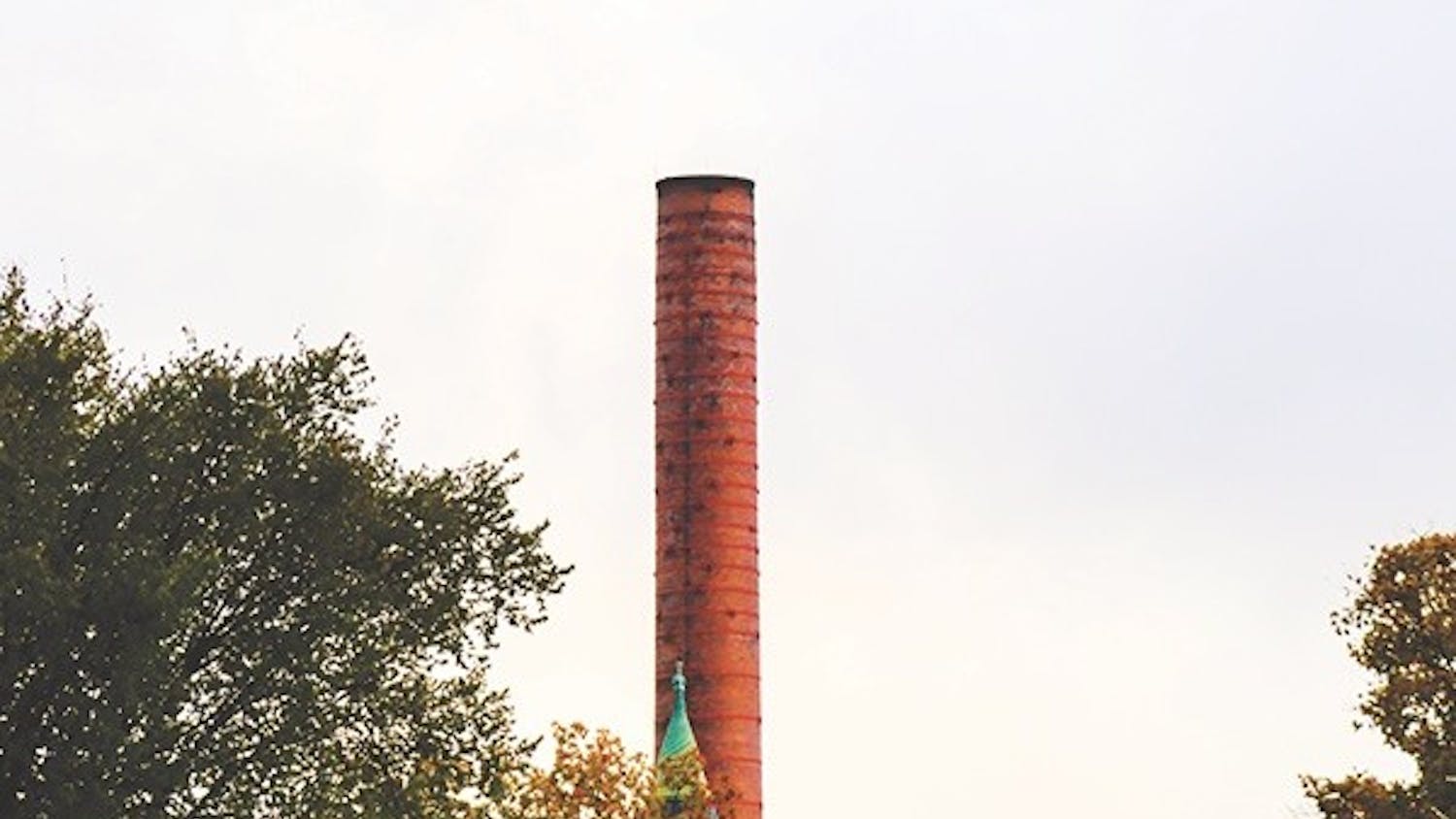Hanover has committed to becoming 100 percent dependent on renewably generated electricity by 2030, and renewably generated transportation and heating fuel by 2050. This decision, which the town has been working toward since 2017, came as a part of the Ready for 100 program designed by the Sierra Club in order to move towns and cities to transition to sustainable energy practices.
According to town manager Julia Griffin, residents of Hanover and members of the College community have generally been supportive of this goal and are prepared to make changes to become more sustainable.
During the spring of 2016, volunteers from the Sierra Club of the Upper Valley organized a grant application for the Ready for 100 program — a nation-wide Sierra Club campaign to help accelerate a transition to 100 percent renewable energy through the empowerment of local leadership — and worked with the Sustainable Hanover committee, according to Griffin. Although these plans require capital investments, Griffin said that Hanover residents are more than willing to help out.
“Residents have been very eager to jump onboard,” Griffin said. “People understand and agree that climate change is important and we understand that we need to get real busy to reduce or prevent the impacts that climate scientists are predicting.”
One important factor in moving forward with the town’s sustainability goals was the support of the College, which Griffin said is the largest energy and fuel user in the town. Griffin said that former and current faculty, as well as members of Dartmouth’s sustainability office, work with the town to pursue mutual goals.
“We’ve got a lot of cross-pollination happening between the College and the town as we both drive toward similar goals,’’ Griffin said.. “I don’t think we would have moved forward with something as ambitious as we did if we didn’t have the support of the College.”
Dartmouth Sustainability Office director Rosalie Kerr ’98 described the ways in which Dartmouth is creating more sustainable energy. According to Kerr, Dartmouth has a current total of 13 solar arrays, with plans to build more in the near future.
The College’s heating mechanism will also become more sustainable, according to Kerr. Kerr said that the campus is currently heated by moving steam, a system heated by No. 6 fuel oil via a network of underground pipes. Dartmouth is transitioning to a system that would instead be powered by hot water, which is 20 percent more efficient and which will be heated using biomass fuels. The College plans to begin construction of the new plant in 2023, and have the new system fully operational by 2025. By burning sustainably sourced wood chips, the College will eliminate fossil fuels from the heating process.
Hot water is an improvement from the current infrastructure since it is more adaptable and requires less maintenance, Kerr said. Additionally, it will enable better control over building temperatures.
Alexander Miller ’20, a member of Divest Dartmouth — a student organization that advocates for Dartmouth to discontinue investments in fossil fuel companies — said he is not convinced that Dartmouth is committed to renewable energy. Although he said he is aware of the challenges of finding a carbon-neutral energy source and sees biomass as an improvement over No. 6 fuel oil, he is still disappointed by the College’s characterization of biomass technology.
Miller said the College isn’t “renewable” in the way that the average person understands the term. He said that biomass is “technically renewable” since trees can be regrown, but that says he doesn’t agree that the method is truly carbon neutral since it simply involves burning wood chips instead of oil.
He said he thinks of the term “renewable energy” as more of a “rhetorical choice” than an accurate way to describe the environmental implications of using biomass as an energy source.
Kerr acknowledges that biomass is not a flawless solution, but said that is was the most appropriate decision for Dartmouth right now.
“There is not a perfect answer,” Kerr said. “I would love to generate all our heat and electricity with solar and wind right away, but because of the lack of accessible battery technology, our scale and the historical importance of some of our infrastructure, it isn’t simple.” Kerr added that the College has to burn something, so burning biomass in the short term is the best way to get the College to their goals.
Kerr said that the fact that New England weather isn’t ideal for solar energy generation combined with challenges finding sites for solar and wind power pose difficulties in Hanover. It is especially difficult to find satisfactory solar sites since the Hanover community cares about the character of the town. Kerr said she invites criticisms, since sustainable change needs to affect everyone, and said these concerns have started great conversations.
Some Dartmouth community members are concerned about the sincerity of Dartmouth’s commitment to green energy, such as Miller, a member of Divest Dartmouth, a student club opposed to the College’s investment in fossil fuel companies that advocates for the divestment of these companies from the school’s portfolio. Miller said the College lacked a good excuse to remain invested in fossil fuels.
He said that the school’s commitment to reaching 100% renewable energy can hypothetically be separated from the school’s aim to contribute to financial aid and other new programs to benefit students, which can be achieved through profiting off of the carbon economy.
“I wouldn’t say that myself, or anyone in the sustainability community, believes that this is a reasonable excuse to be investing in fossil fuels,” Miller said.
Samantha Newman ’22 questions Dartmouth’s dedication to sustainability overall. In regards to the institution’s values, Newman said that the Sustainability Office is doing great work but that sustainability isn’t at the top of the College’s priority list. “The Sustainability Office is doing great work and by funding it they [the College] are doing something, but there are many things that are much higher on their list of priorities.”
Newman worked as an Eco Reps intern — a first-year internship program through the Dartmouth Sustainability Office — during her freshman fall, and was highly active in the implementation of the Green 2 Go program, which implemented reusable take-out containers in various on campus dining locations.
She says that although the College might not prioritize sustainability as much as she would like, there are many students and staff members who work tirelessly to implement greener practices. Although not all students may be informed on the nuances of climate activism, both Newman and Miller believe that most people are trying to be better, even in small ways.
“Even people who are just hopping on the bandwagon of Green 2 Go, who are carrying around the containers or carrying around sporks are really encouraging to see,” Newman said.
For people who are passionate about greener futures at Dartmouth and the community as a whole, there are many ways to get involved in the sustainability community. Miller characterized the community as fragmented, grass roots and issue-based.
Sustainability chairs of greek houses, faculty interest groups, student organized initiatives and the Irving Energy Institute work in tandem to pursue the college’s sustainable goals. Kerr described the breadth of ways that she sees students involved in the sustainability community.
“Students are involved at every level, whether they are in the sustainability core, or student intern, or if they aren’t involved directly with are office but are a part of a group like Divest or living in the SLC which our office oversees. They might be working on it as a job or an academic interest or just as a life interest. They’re all a part of our community,” Kerr said.
Kerr said she would tell incoming freshmen to “follow their passion and get involved in the issues that they care about.” She invited students to come to the sustainability office with their ideas and to learn how best to create change in the sustainability field.
Griffin echoed this statement, and said that it is important for the city of Hanover to engage young people who are passionate about the environment.
“There is such a huge role for students in all of this,” Griffin said, “The student generation of leaders is inheriting a planet that we screwed up, and the expectation of all of you is get on board and get busy. You’re the next generation moving forward in this front.”
This article is a part of the 2019 Freshman Issue.




